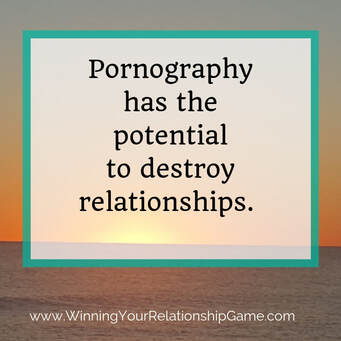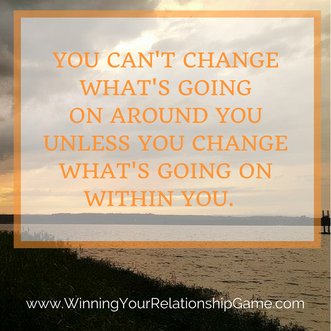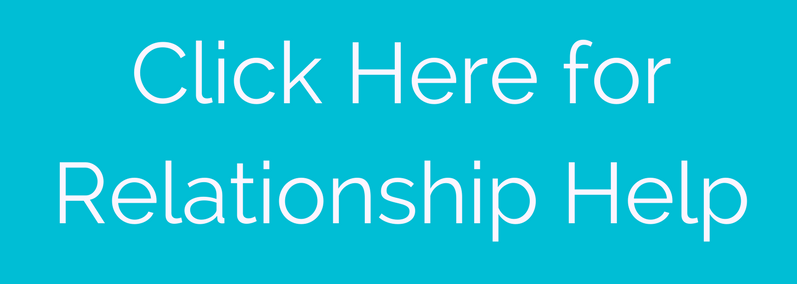 Experts say that 90% of communication is non verbal. For instance, I had a nervous habit of giggling when I was anxious. Someone confronted me about being flippant about a serious topic and I went to work changing that habit. Some aspects of what we call body language are outlined below. This is the tip of the iceberg when it comes to how we communicate though. 1. Eye Contact-Maintaining good eye contact is a great method of becoming engaged with the speaker. It demonstrates focus and attentiveness to what is being spoken. There are some cultural implications with direct eye contact (and you should always have awareness of these), but for most people looking into the eyes of another person most of the time is essential to making them feel heard. 2. Smiling-In most cultures, a smile is a gesture of welcome and approval. Smiling encourages the speaker to continue speaking (good goal!). Conversely, frowning implies disapproval and should be avoided unless you are using this to accentuate a point. For instance, you might be puzzled by conflicting information. Displaying a frown while asking about this incongruence can accentuate the question about clarification. 3. Gestures-A lot of people “speak with their hands”. While this can be habitual, like saying umm, it is worthwhile to examine if you should tone down this particular habit. It can be extremely distracting to the speaker. Not to mention, some gesturing may be perceived as threatening. If your partner feels intimidated by your gesturing, sit on your hands! 4. Proxemics-Everyone has a different comfort level with how close you get to each other. A good rule of thumb is at least 3 feet in distance. You both should be able to reach out and grasp hands for a handshake comfortably. Be mindful that different cultures have different concepts of appropriate proxemics. Your partner might be very comfortable to be close to you ordinarily, but in the heat of an argument, more distance might be called for. 5. Touch-Touching your partner is an intimate interaction. The type, frequency and areas to be touched is highly personal. Discuss this with your partner. Touches can communicate affection or anger and the message is the one the receiver gets. If your partner tells you they don’t like a certain touch, don’t get upset, believe them! All these avenues of communication can help or hinder your connection. Winners examine their strategies and improve them. Keep Being Lovely! Allison PS-Sign up for my email list and I’ll share some great relationship tips with you! Sign UP HERE!
Comments
A-Feelings are just feelings and they're not good or bad, right or wrong. You can feel attracted to someone and not have to have a relationship with them. The same way I can really like chocolate cake, but not have it for dinner every night.
Behaviors do not HAVE to follow feelings, although we usually treat them as one and the same. If there's a good reason not to be with him, then don't. If he's just different from your normal "type", why not give it a chance? The world is full of unlikely love stories. Best wishes! Allison PS-Do you have a Q that needs an A? Let me know at [email protected] PPS-Sign up for my email list and I’ll share some great relationship tips with you! https://www.winningyourrelationshipgame.com/sign-up-for-4-awesome-videos.html  Is it just me or is the whole world talking about porn these days? Everywhere I turn, someone is struggling with pornography in their lives or knows someone who has. I like to remain neutral about topics that can get moralistic so I’m not trying to be judgey about this. I have seen the destructive nature of pornography in my practice though. I’ve tried engaging with others about this topic and some folks are very dismissive. I hear things like “boys will be boys”. I attended a training a while back and the instructor stated when porn is a problem in a relationship, it’s the objecting partner’s problem. They suggested the remedy was relaxing and watching together. I was a little judgey in that moment, appalled actually. Working with couples, it’s very common that porn is a point of contention. Telling the objecting partner, “This is your insecurity problem” when that partner is not getting their sexual or connection needs met is terribly short sighted. If a neighbor watches porn in front of your children, it’s considered abuse. Why does it suddenly become non-abuse when your child turns 18? There’s something inherent in porn that leaves some of us vulnerable. Now I’m not saying watching porn is wrong. Lots of couples enjoy it together as part of a healthy, happy sex life. When it leads to unrealistic expectations about sexual behavior, it’s a problem. When it is interfering with a happy, healthy sex life, that can be a problem. When engagement with porn overshadows the actual relationship, problems abound. So, do problems in the relationship drive someone to porn or does porn cause problems in the relationship? Just as an observation, pornography allows the viewer to be totally self-centered without the burden of engaging with another human. That’s something we can probably all relate to wanting at times. There is no performance pressure when you’re engaged with porn. No one is judging whether you’re satisfying another person or not. While scientific studies are contradictory about whether porn addiction is “a thing”, biologically, porn impacts us physically. Consider the opinion of Kevin Majeures, a psychiatrist, specialist in Cognitive Behavioral Therapy and staff of Harvard Medical School. According to his research, the brain is impacted by pornography as follows. In studies of rats, a male rat contained with a receptive female will mate, but once done, the rat is content. However, if a second receptive female is introduced, the male will again mate. This pattern is repeated every time a new female is introduced until the male rat is exhausted. This pattern has been repeated in every animal studied. This is called the Coolidge Effect. https://en.wikipedia.org/wiki/Coolidge_effect Pornography impacts a human male’s brain in much the same way. Pornography offers the watcher a seemingly unlimited number of willing females. The lower brain is unable to discern a difference between a real female and a virtual female. Each new female that appears bumps up his sex drive again. Dopamine is the hormone of desire. When you see something desirable, your brain pours out dopamine. This helps you focus on the object of your desire. When someone clicks and sees a new object of desire, an enormous flood of dopamine occurs and it’s on. In our evolutionary history, humans have never been exposed to so many potential mating opportunities. With each new female introduced, a new rush of dopamine occurs. This creates a dopamine binge. This hormonal cascade creates a vicious circle. Use of pornography overstimulates dopamine production. When the brain becomes flooded with dopamine, the brain destroys dopamine receptors to control the flood. This creates a lowered ability to utilize the dopamine. Thus, it takes even more dopamine to achieve the same thrill. It takes more time using porn, or more site visits, to get to the same stimulated state. Eventually this will not produce the desired effect and the dopamine must be boosted with shock, disgust or surprise. This means moving to kinkier and more perverse pornography, things that induce fear or disgust. This leads Dr. Majeres to 2 conclusions. 1. Pornography is highly addictive and 2. Pornography is harmful to relationships. If you are interested in reading Dr. Majeres’ article, this is the link: http://purityispossible.com/the-science-behind-pornography/ Having sex with the same person repeatedly offers no sustained, similar rush in dopamine. This often causes the person watching pornography to prefer that activity to real life engagement. Their partner feels rejected, inferior and unimportant. Their partner gets their attachment bond rattled. Whether you see it as an “addiction” or not is irrelevant because it CAN be a problem. Even if it’s just that your partner finds it disturbing. Part of our job in a relationship is to do what we can to make our partner feel secure. Some signs that pornography might be a problem in your relationship are:
So, to those who see porn as no big deal, consider your partner’s feelings and preferences. Consider your own well mindedness. Porn has the potential to destroy relationships and families. I’ve seen it happen. If you or a loved one is struggling with porn obsession, find some help here: http://husbandhelphaven.com/porn-addiction-withdrawal-walkthrough/ https://www.artofmanliness.com/articles/how-to-quit-porn/ https://www.youtube.com/user/CovenantEyes/videos https://www.covenanteyes.com/2012/04/23/how-to-quit-porn-6-essential-steps/ What have been your experiences with pornography? Has it been healthy or destructive in your life/relationship? Take care, Allison  I stub my toe I give a little yelp, or a big yelp depending on the stub. It’s my natural reaction and there’s not much space to reasoning about that. Or is there? In a lecture hall where a hundred attendees are listening to a speaker and I stub my toe, I’m probably not going to yelp! Somehow, the situation interrupts my natural reaction and I can choose a more appropriate response. Many relationship interactions are the same. We react to discomfort and fail to censor our reactions. My husband tells me he doesn’t like my haircut and I snap at him followed up by the cold shoulder all because I can’t handle the discomfort his “criticism” caused me. The problem with reactions is they rarely make a situation better and in most cases, really mess it up. It represents the paradox of emotions in that what we want, we make less likely because of how our emotions drive our behavior. It can be really worthwhile to spend some time in discomfort learning about yourself and responding in more effective ways. Take my example: my husband says he doesn’t like my haircut. I feel upset, uncomfortable, but I catch myself and rather than reacting, I explore why I’m having such a strong feeling. So, my thoughts might run like this: Who does he think he is? I like this haircut! His haircut really sucks. (You might agree, this isn’t helpful) You might employ the Five Whys here. Why am I feeling so upset? Because his comment feels like criticism. Why do I have a problem with his criticism? Because I want him to think I look nice. Why do I want him to think I look nice? Because I want him to love and accept me. Why do I want him to love and accept me? Because if he doesn’t, he might not want to stay together. That’s only four whys, but I’m starting to get a much clearer idea of why his comment bothers me. My insecurity is triggered a bit and that fear fuels my anger. Of course the rational part of my brain understands this is ridiculous. Armed with that understanding I can now respond very differently. This process requires spending a time in discomfort (that’s how growth occurs). How much discomfort is there when you snap and withdraw? I’m betting MORE than my way! So Practice Time! Think about the last time you had a strong reaction to something. Can you allow yourself to sit with that memory and analyze where it came from? Spend some time with the Five Whys to lead you to a deeper sense of where your fear or pain lies. This is excellent material to share with your partner if you can. Let me know how it goes! I’d love to hear from you. Comment or email me privately at [email protected] Until then, Allison  As a 20+ year veteran of marriage and family counseling, I have often been dumbfounded at how a previously loving couple will be cruel to each other. Often they will intentionally insult, disrespect, and otherwise belittle each other. Although we can assume that most relationships begin with a level of love, hope and commitment that convinces the couple that they want to be together for the forseeable future, several years later they cannot carry on a civil conversation. Often by the time a couple seeks counseling the relationship is doomed to fail. For this reason counseling couples is often frustrating and tedious work. I have often said I wish I could be with my patients all day to coach them through their interactions. Many of the things I coach people on are repetitive and need to be applied on a daily basis rather than one hour a week in my office. Winning Your Relationship Game means you reach a level of happiness they’ve only dreamed of or haven’t felt in a long time. Let me begin by telling you what no one can help you do. No one can tell you how to convince your partner that they are wrong and you are right. No one will excuse your behavior because of what your partner is or isn’t doing. If you’re looking for a way to change others, good luck! Chances are very good that there are some things that you can change that will make a positive difference in your relationship anyway. Relationships rest on 3 foundational pillars of Compassion, Communication and Commitment. You must have all 3 for your relationship to remain stable. A shaky relationship will have weaknesses in one or more areas. Development in all 3 areas will grow the closeness and happiness of the relationship. Your relationship will be a winning one. My philosophy is also one of acknowledging the role of attachment. Insecure attachment fears seem to be at the bottom of every conflict within a relationship. If we can own that our responsibility is to make our partners feel securely attached, our relationships will be amazing! Things that impact relationships are issues of addictions, mental illness, domestic violence, or infidelity. These introduce irrationality into any situation. It’s difficult to work with someone who does not think in a rational manner. Please get professional help if you need intervention which focuses specifically on those areas. If you’re in an unsafe situation, I urge you to get outside help immediately. There are 3 areas of our reality that has to be examined. Those are areas of thoughts, feelings and behaviors. While thoughts and feelings are important, behaviors are what wins or loses in relationships. Sometimes, changing behaviors is dependent on addressing the thoughts and feelings behind them. Don’t be afraid, I think you’ll find this simple, but maybe not easy. All things in life occur in cycles. Relationships are no different. Closeness occurs and distance occurs. There’s the falling in love part and then there’s the settling in part. Each change in stage represents a new set of rules for your relationship. Our actions during and reactions to these times create a stronger or weaker relationship. Sometimes we read difficult times as the end of a relationship, but it may just be a natural stage of moving closer. I also see a relationship as a system. This system cannot change in one area and be unchanged in another. Therefore any change you make will impact the relationship. So, CAN you change your relationship? Yes. And you should if you’re not happy with it now. Love and Be Lovely! Allison |
Helping You
|




 RSS Feed
RSS Feed

